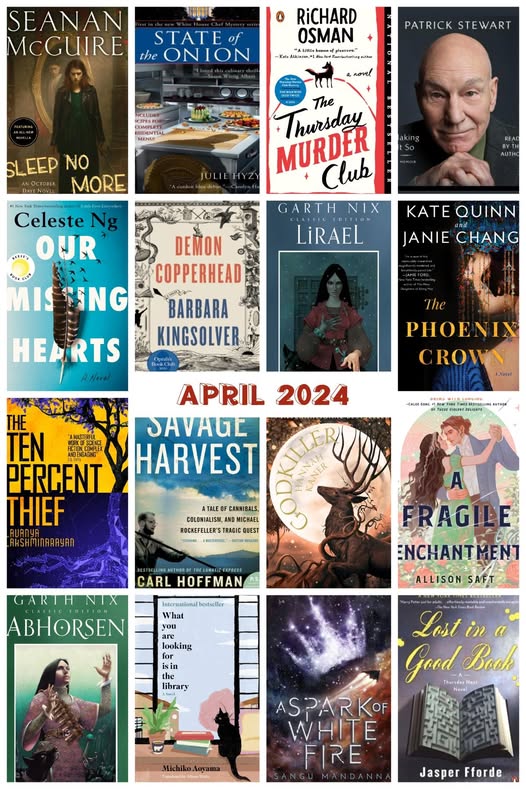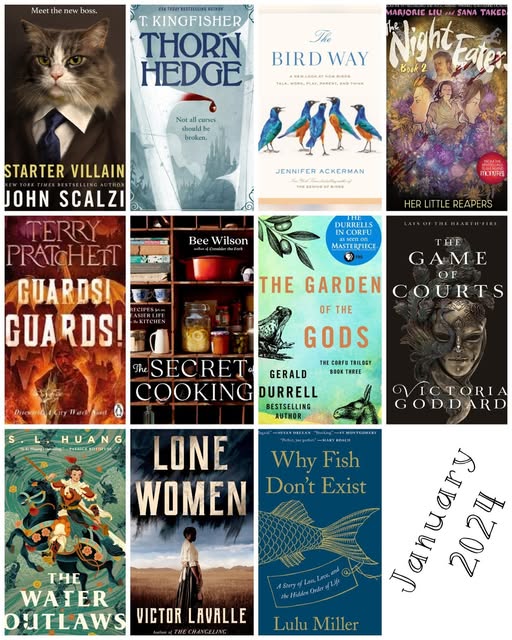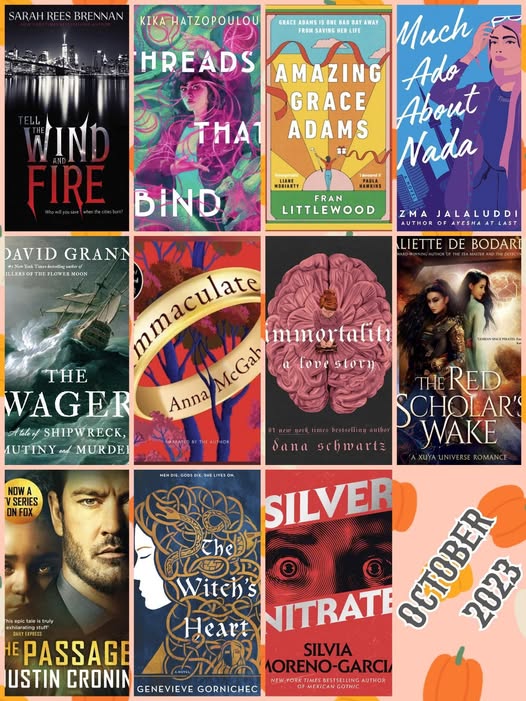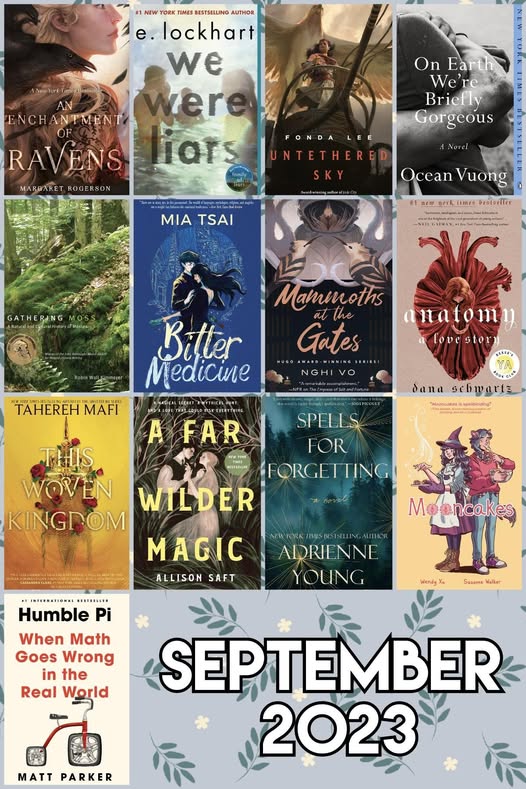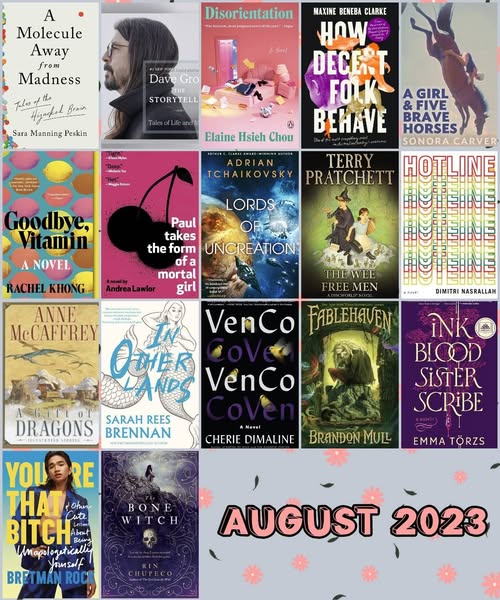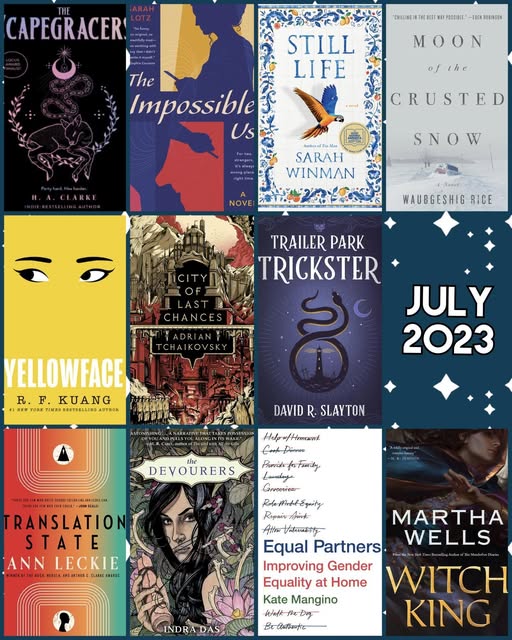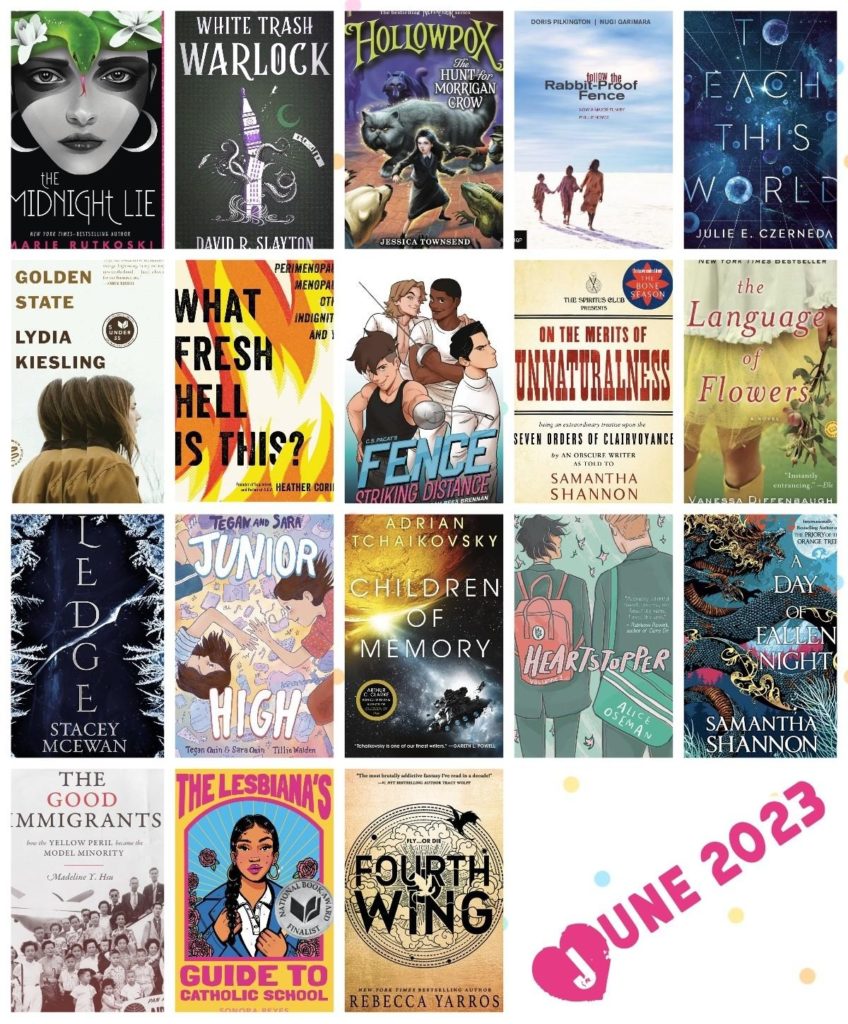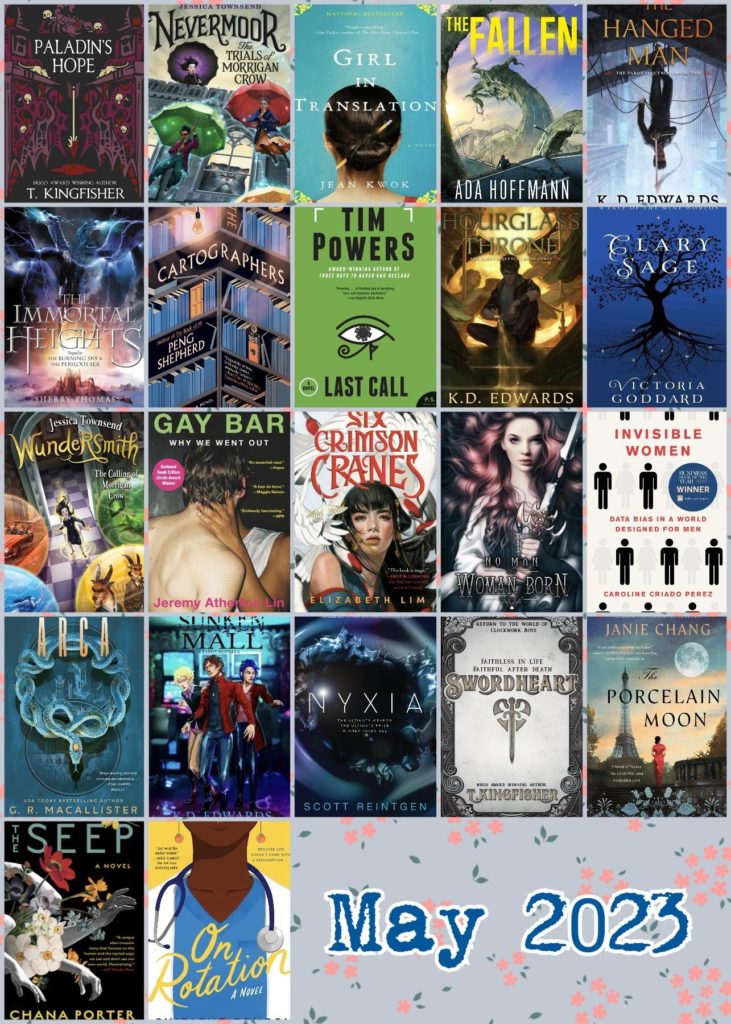This is very late, because as I told K, I can’t stop reading to write. I’m already nine books into June, but at least I finally finished the rundown for May.
For some reason I read a lot of detective fiction this month. The embassy book club book (Dead Cat Bounce) really suffered as a result, since it was a really unexceptional potboiler whereas the others were all pretty darn incredible, each mixing solid character growth with riveting shenanigans and truly exciting plot twists, with extra social commentary to spice things up. Sorry Peter Cotton, better luck next time.

Traveller’s Joy, by Victoria Goddard: Novella, fantasy, prequel to the Greenwing and Dart series. The traumatic university experience that shaped Jemis Greenwing’s character is often referenced but never directly depicted in the series; this novella comes closest, from his friend Hal’s viewpoint as he helps Jemis recover from the unexpected assault. Nice exploration of their characters, and how trauma can both break relationships and strengthen them; also sets things up nicely for events in later books.
The Archive Undying, by Emma Mieko Candon: Science fiction, dystopia/AI. The world is made of warring city-states, some ruled by AIs, others by human conglomerations that seize and keep power using ENGINEs created from scavenged AI parts. Such machines require the incorporation of “relics,” humans interfaced with dying AIs. Sunai, once a resident of the city-state run by the AI Iterate Fractal, became an unwilling relic during Iterate Fractal’s death; he now does his best to avoid the attentions of human conglomerations such as the Harbor, who would love nothing more than to leash him into a mech as their tool. The world is undeniably cool as we follow sensitive, self-destructive Sunil and his secretive sometimes-lover Veyadi through a landscape of destroyed civlizations, half-sane AIs, and humans who just want to make a life out of the chaos. Themes include trauma, both personal and societal; consciousness, self-determination, and responsibility. The narration is compelling but also confusing, as Sunil’s and Veyadi’s viewpoints are often interspersed with AIs which may or may not have taken up residence in one or another of their skulls, and the characters are so opaque to one another that you’re never quite sure of anyone’s motivation at any given point. Apparently there’s going to be a sequel.
Well of Lost Plots, by Jasper Fforde: Third in the Thursday Next series of… I guess you can call it lit fic, it’s just an excuse for Fforde to nerd out over literary characters and conventions. While she waits for her child to be born, Thursday and her pet dodo Pickwick are sheltering inside a never-published detective novel within the Well of Lost Plots. Of course life is not quiet; she is continuing her apprenticeship under Miss Havisham of Great Expectations, dancing in and out of book universes in pursuit of literary crimes and the advancing threat of UltraWord, an advancement that promises greater readership and readability but in reality, reduces writing quality and locks down a book after it’s read more than three times. She is also fighting a battle inside her own mind, as villainness Aornis Hades threatens her very memories. You never really worry for Thursday but it’s fun to follow her adventures through various literary universes.
Rage the Night, by Donna Morrissey: Historical fiction, 1914 Newfoundland. Orphan Roan learns, in a woman’s deathbed confession, that he actually does have a family; his search for them takes him away from the people who have raised and cared for him in the Northern Peninsula of Newfoundland to the town of St John’s, where he signs onto a rickety vessel joining that season’s seal hunt. Morrissey’s portrait of Roan’s journey, both through wintry Newfoundland and through his own understanding of his past, is brilliantly done: Roan starts out the journey caring nothing for anyone or anything but his own need to understand his past, and gradually comes to a point where human connection becomes vital to survival. Riveting and beautiful, and a really searing look at the sealing disaster in 1914 that left hundreds of men exposed to killing snowstorms while stranded on ice floes.
Ink and Bone, by Rachel Caine: Now this is dark academia done well. The Great Library rules the flow of knowledge and ideas in every city, through alchemy enabling access to any book anywhere but in reality controlling what people are and aren’t allowed to read (unsubtle commentary on digital rights management). Jess Brightwell is from a family of book smugglers, stealing and selling forbidden tomes; however, his dream is to be a scholar for the Great Library, leveraging his love of words and knowledge for the greater good. Of course things go very dark, as Jess’s scholar class is harshly tested by the Library’s requirements and dark secrets are uncovered that demonstrate the Library values their control over human lives. First in a series.
Dead Cat Bounce, by Peter Cotton: Potboiler mystery, read for embassy book club. The “dead cat bounce” theory describes a brief recovery in a declining stock or political trajectory; in this book, it’s taken quite literally as a killer strews corpses around Canberra, each accompanied by a dead cat. Detective Darren Glass teams up with an attractive lady reporter to track down the killer as stakes rise. The book is… not terribly well written; the characters are puppeted through the motions of interviews and fact-finding without being given much in the way of personalities to flavor the plot. Honestly, the news articles and op-eds interspersed throughout the story were more enjoyable to read than the actual story. The only fun bits for me were recognizing places around Canberra, which at least kept me amused while waiting for the story to plummet towards its increasingly unlikely end.
The Tainted Cup, by Robert Jackson Bennett: Mystery/fantasy, Holmes and Watson style characters in a land haunted by creeping contagions and Cthulhu-esque monsters. Eccentric, brilliant investigator Ana Dolabra, who blindfolds herself in order to block out the world’s incessant input, sends her assistant Dinios Kol to investigate a murder in which a tree has torn its way out of an unfortunate officer. Din, an “engraver,” is able to engrave a perfect copy of what he sees and hears into his mind; Ana utilizes his abilities (while scandalizing his sense of propriety) to draw brilliant conclusions, leading them towards an even greater threat than they had dreamed. Quirky, demanding Ana is the perfect Holmes to Din’s low-key, determined Watson, and I’m already on the waiting list for the next book in the series.
The Starless Sea, by Erin Morganstern, read by Dominic Hoffman, with Dion Graham, Bahni Turpin, Fiona Hardingham, Allan Corduner, and Jorjeana Marie: Fantasy / magical realism, the sort of story that nests other stories within itself and takes its time unfolding. Grad student Zachary stumbles upon an unlisted book in the library and is startled to find within it a story recording his own childhood experience. As he feels his way towards the mysteries within the book, he’s drawn gradually into the world that the book describes, along with a cast of mysterious characters that seem interested in either helping or hindering him. The writing (or narration, in this case, by a cast of talented readers) is achingly beautiful, suffused with the love of words and storytelling; Zachary’s quest for meaning and belonging strikes a universal chord in anyone who’s felt a bit like the world is just too tedious and normal for them. That said, the book did have a few weaknesses; Zachary’s journey was less of a focused quest and more a disoriented stumble, which made the accompanying stories actually much more interesting than his main plotline, and towards the end it felt like Morgenstern worked so hard to create a universe of alternate stories and endings that the “real” ending seemed obscured. Still, a really gorgeous and satisfying experience.
Lonely Castle in the Mirror, by Mizuki Tsujimura: Magical realism / coming of age. Kokoro can’t make herself go to school, so she stays at home; one day, she looks up and sees her mirror glowing. It turns out the mirror is a portal to another dimension, a castle where she can be herself, but bound by its own rules: she can only visit during a certain window, and she and the other children visiting the castle have a year to find the key that unlocks the Wishing Room. Kokoro immediately guesses that there must be reasons why the other children are also out of school and able to visit the castle during the day, but the story takes its time allowing the children time to trust one another enough to let their personal traumas out, to find within one another kindred spirits. This closeness allows them to help one another out in various ways as the story progresses. Really well done treatment of loneliness, mental health, and human connection, wrapped up in a really neat magical package.
Paladin’s Faith, by T. Kingfisher: Fourth in the fantasy sword-and-sorcery Saint of Steel series, and full of typical Kingfisher snark. By this point in the series, anyone who’s read them knows that the paladin is going to end up with whatever other character is being featured; in this case, the Paladin is honorable warrior Shane, his love interest is practical spy Marguerite, and the plot device bringing them together is an artificer (inventor) who has come up with a way to upend the world’s economies by making resources cheaper. Also there’s a cult around a demon unlike any other in the series. I enjoyed this book, as I enjoy all the books in this series, but I really think Kingfisher was more interested in exploring different aspects of her world than in bringing her two main characters together. Very rewarding ending that drops tantalizing hints towards the next book.
All the Sinners Bleed, by S.A. Cosby: Mystery/thriller/race relations. Charon County, Virginia, has a Black sheriff named Titus Crown, and many highly-placed members of Charon society are not happy about it. Titus, who ran out of a sincere desire to improve the town, does not have patience to deal with them; a young Black man shot a teacher at the local school and was then shot by police as he exited the school, and the town is tearing itself apart over whether or not they think justice was served. As Titus digs into the shooting, while concealing secrets from his own past, he uncovers unpleasant evidence of a serial killer having been at work in his very town; when the killer starts targeting Titus and the people around him, things get nasty fast. Gripping, dark, and very layered with the messy racial history and politics of the South.
The Murder of Mr. Ma, by John Shen Yen Nee and SJ Rozan: Mystery, a Sherlock Holmes dynamic overlaid onto traditional gong’an fiction (a Chinese crime genre in which magistrates are the detectives and heroes). Lao She, a rule-abiding academic, finds himself playing Watson to Judge Dee Ren Jie, a sardonically brilliant veteran for whom justice is more important than following the rules of a 1920s London that still has very colonialist views of the Chinese race. As body after body turns up dead, all Chinese individuals that the local constabulary can’t be bothered to investigate closely, Dee digs deeper into the situation while dragging along a clueless Lao. Very classic London detective story with the culture conflicts providing a fresh, enjoyable spin.
Mislaid in Parts Half-Known, by Seanan McGuire: Fantasy / magical realism, ninth in the Wayward Children series. Follows very closely on the events of the previous book, which is not usual for this series, but good because Antsy’s story didn’t have a solid conclusion. This book takes Antsy and a few familiar characters into Antsy’s world of portals, tying up some loose ends from the series along the way. It had been long enough that I only vaguely recognized some of the characters, so the emotional impact of their resolutions didn’t hit the way it could have if McGuire had spent longer re-introducing them. It’s weird; plot-wise, I think this story was needed, but the major strength of the Wayward Children series was that each book was self-contained and independently magical, and McGuire’s recent turn towards making them more interconnected actually struck me as a bit of a downgrade.
Taste: My Life Through Food, by Stanley Tucci: This food-centric memoir was recommended to me specifically in audiobook version, and I found it super enjoyable. Tucci does not lose sight of his brief, which is to come at everything through the angle of food: he begins with the large family meals and home-packed lunches of his Italian-American childhood, takes you through his favorite cheap eats during his years auditioning everywhere, and gives you great behind-the-scenes insight into the food provided during movie shoots in different countries. Recipes are interspersed with each chapter (one reason I regretted getting the audiobook! will have to track down a print version) and Tucci manages to make even those sound interesting, with occasional dry commentary and persnickety asides. His affection for his family and friends are evident in his joy in cooking for them and sharing meals with them. His love of food, and how it reflects into his love of life, is so all-encompassing that it’s incredibly jarring in the penultimate chapters when he shares his experience with battling oral cancer; you truly get a sense of how much was taken away from him during that time, and it’s a huge relief when he talks you through his eventual gradual recovery. Great listen, like the audiobook equivalent of comfort food.

